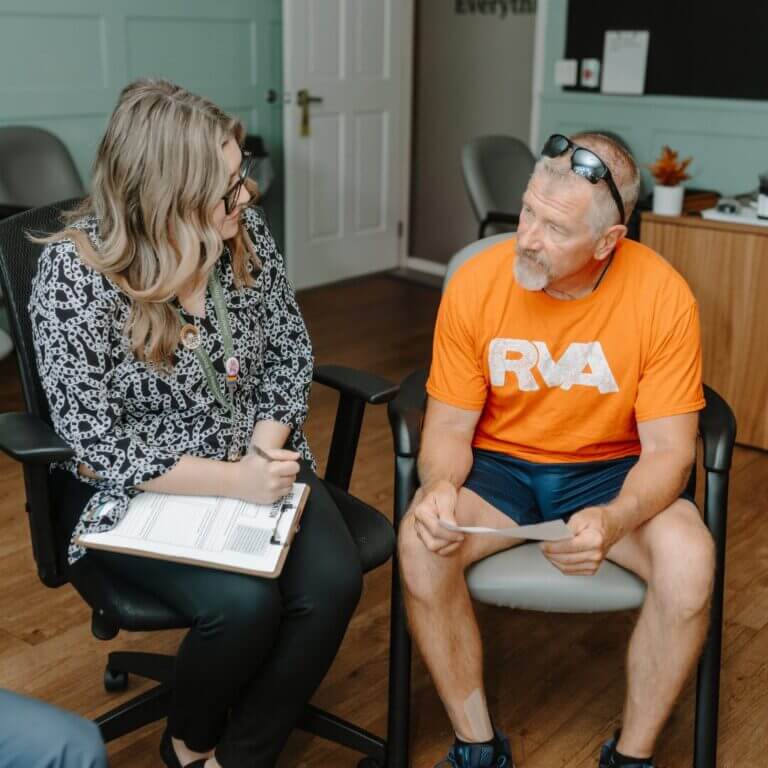Our nation’s veterans are suffering from post-traumatic stress disorder (PTSD) in ever increasing numbers. PTSD is one of the factors contributing to the rising suicide rate among our military members, which is 1.5 times greater than the civilian population, according to the U.S. Department of Veteran’s Affairs.
The deep-seated emotional effects of experiencing a life-altering trauma often leads to seeking coping techniques to help soothe the emotional pain of the trauma. In response to debilitating anxiety and depression, some may resort to using prescription medications or alcohol in an effort to self-medicate. This may result in a dual diagnosis, or co-occurring PTSD and a substance use disorder.
What is PTSD?
Post-traumatic stress disorder (PTSD), once referred to as shell shock or battle fatigue, is an extreme and persistent response to having witnessed or experienced a highly traumatic event. While experiencing trauma will result in a period of emotional distress and instability, in most cases the effects of it will resolve in a timely manner. Individuals with PTSD have not been able to overcome the deeply ingrained stress response to the trauma. Even weeks later, the effects of the trauma can still cause serious impairment in daily functioning. When these effects do not resolve in a month or two it is diagnosed as PTSD.
A traumatic event causes the individual to feel threatened or afraid for their life, often feeling a lack of control over the situation. For military personnel, being constantly exposed to situations that are unpredictable and potentially lethal can lead to PTSD, as well as experiencing combat fatalities and destruction firsthand.
PTSD has certain neurological and psychological features that define the disorder. The acuity of these traits or features can be associated with the levels of sedatives or alcohol used to manage them. PTSD symptoms include:
- Intrusive thoughts, such as disturbing memories, nightmares, or vivid flashbacks of the event.
- Avoidance behaviors, such as avoiding the people, places, or situations that remind the individual of the traumatic event. They may attempt to avoid discussing it, remember it, or thinking about it as much as possible.
- Negative thoughts and feelings, such as the irrational belief that no one can be trusted, or saying negative things about themselves. They experience fear, anger, guilt, and shame, and avoid activities once enjoyed.
- Hyper-arousal symptoms, including being easily startled, over-reacting to stimuli, being irritable and angry, struggling with insomnia, and difficulty concentrating.
PTSD and Co-Occurring Substance Use
The link between PTSD and substance use is a common one. In fact, according to a 2012 article published in Current Psychiatry Reports Berenz and Coffey, approximately half of those receiving treatment for a substance use disorder meet diagnostic criteria for co-occurring PTSD.
The daily symptoms, such as irritability or edginess, insomnia, anger, and feelings of guilt are hard to bear. Veterans may be prescribed benzodiazepines to help manage the anxiety symptoms. Unfortunately, these drugs, such as Xanax, Ativan, or Valium, are addicting, which may lead to the secondary substance use disorder. The use of alcohol, also highly addicting, to numb the emotional pain or to promote relaxation or sleep is also a common coping mechanism for individuals struggling with PTSD.
Help for Veterans with PTSD and Co-Occurring Substance Use
Dual diagnosis treatment will address both co-occurring disorders simultaneously. Cognitive processing therapy (CPT) is similar to cognitive behavioral therapy (CBT) and helps the individual to identify how the trauma has led to disordered thoughts, feelings, and behaviors, and to replace those with a new perspective about the trauma. Prolonged exposure therapy (PE) is also utilized for treating PTSD, which involves the patient repeating the details of the trauma until they become less potent. Antidepressants may be prescribed to help stabilize neurotransmitters.
Holistic therapies are a valuable tool for treating veterans with PTSD. These can help the patient manage stress levels while also inducing deep relaxation. Holistic activities, such as yoga, acupuncture, aromatherapy, and therapeutic massage can be accessed easily outside of the treatment setting, and incorporated into a new healthy lifestyle routine.
Veterans with co-occurring PTSD and substance use issues deserve compassionate support and treatment to regain their emotional equilibrium and to enjoy a fulfilling life independent of substances.
Ashley Addiction Treatment is an upscale recovery program located in Maryland’s Chesapeake Bay. Ashley Addiction provides an integrated program featuring an effective blend of evidence-based treatments and holistic therapies for individuals struggling with PTSD and co-occurring substance use disorder. Please reach out to us today at 800-799-4673.



